Are you considering an early graduation and unsure how to present your request? Crafting a letter to your educational institution can feel daunting, but it doesn't have to be! In this article, we'll explore a concise and effective letter template that clearly outlines your reasons and aspirations for graduating early. So, if you're ready to take that next step toward your future, keep reading for all the tips you need!

Personal Information
Early graduation requests often stem from personal circumstances, such as academic achievements or unforeseen life events. In this context, students aiming for early graduation must provide specific details, such as their full name (e.g., John Smith), student identification number (e.g., 123456), current degree program (e.g., Bachelor of Science in Biology), and the expected graduation date (e.g., May 2024). Students should also mention the reason for the request, such as completing degree requirements ahead of schedule by taking additional courses or achieving credits through exams. Clear articulation of the rationale behind the request enhances the chances of approval from academic advisors or graduation committees.
Academic Progress Summary
Early graduation can be pursued by students seeking to complete their degree requirements ahead of schedule. Typically, this request requires a thorough review of the Academic Progress Summary, which includes necessary credits (usually 120 for a bachelor's degree) and essential courses completed. Many universities may have specific criteria regarding GPA (generally a minimum of 3.0) and total credit hours obtained (often including both core and elective courses). Additionally, students often must demonstrate readiness for graduate-level studies or career opportunities that align with their field of study, which may include internship experiences or research projects. Relevant documentation may be required to support the request, ensuring compliance with institutional guidelines.
Reasons for Early Graduation
Early graduation can offer students several advantages, such as a head start on their careers, the ability to pursue further education sooner, or personal circumstances that necessitate a quicker transition from high school or college. Academic achievements, like maintaining a high GPA (above 3.5 in many institutions), may justify the request for an earlier exit. In addition, extracurricular commitments, such as internships with companies like Google or volunteer work in organizations such as Habitat for Humanity, can enrich a student's experience and readiness for the workforce. Family situations, such as the need for financial support or relocation, can also be compelling reasons for completing educational requirements ahead of schedule. Supporting documentation, such as recommendation letters from teachers or guidance counselors, can enhance the appeal of the request and demonstrate preparedness and commitment to future endeavors.
Supporting Documents
Requesting early graduation requires a mix of personal reasons and academic achievements to present a compelling case. Prior to submitting the request, compile supporting documents like your academic transcript displaying your GPA (Grade Point Average), completion of required credits (typically 120 credits for a bachelor's degree), and any special achievements such as honors or awards received. Additionally, gather recommendation letters from faculty members who can vouch for your readiness to graduate early based on your academic performance and extracurricular involvement. Include a personal statement outlining your goals and reasons for requesting early graduation, such as acceptance to a graduate program or job opportunities awaiting post-graduation. Providing proof of these opportunities can strengthen your case, demonstrating the value of early graduation for your future aspirations.
Contact Information and Availability
Early graduation requests can be made by students who meet specific academic criteria and seek to complete their studies ahead of schedule. Institutions often require students to submit an official application, outlining reasons such as exceptional academic performance, personal circumstances, or career opportunities. Contact details of the student, including full name, student ID, email address, and phone number, typically appear at the top of the application. Availability for discussions or follow-up meetings with academic advisors may be specified, including preferred times for consultations. This information aids in expediting the review process by administrators and ensures timely communication between the student and the institution regarding graduation timelines and necessary documentation to fulfill the requirements for early graduation.
Letter Template For Requesting Early Graduation Samples
Letter template of early graduation application for personal circumstances
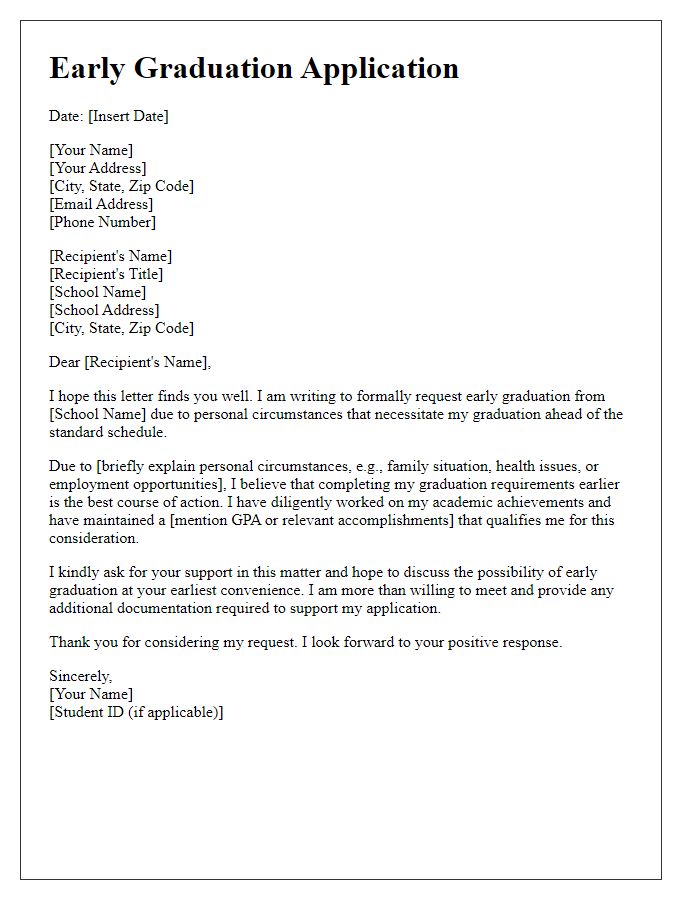
Letter template of early graduation application based on internship opportunities
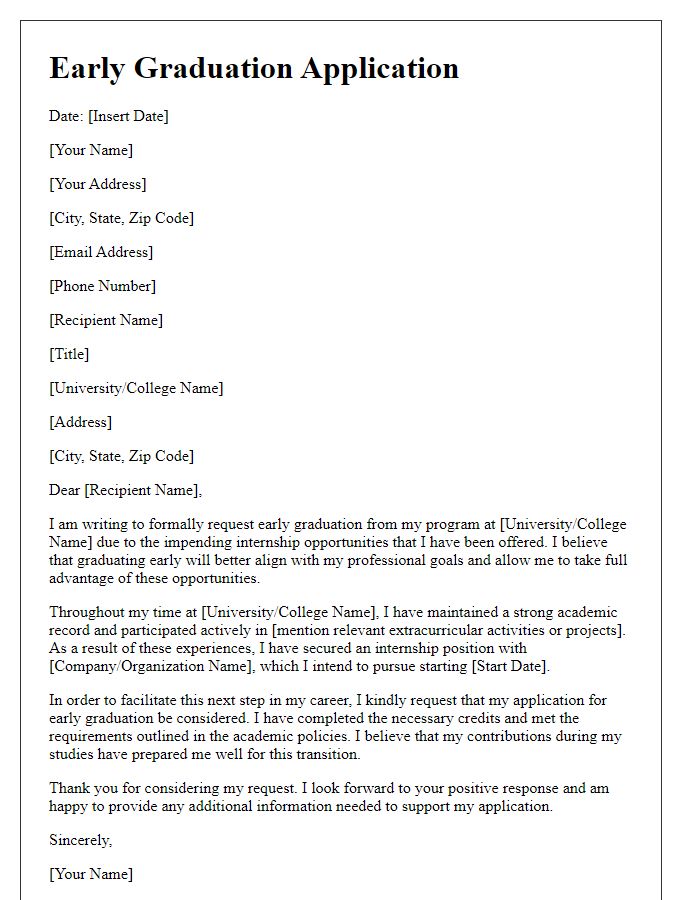

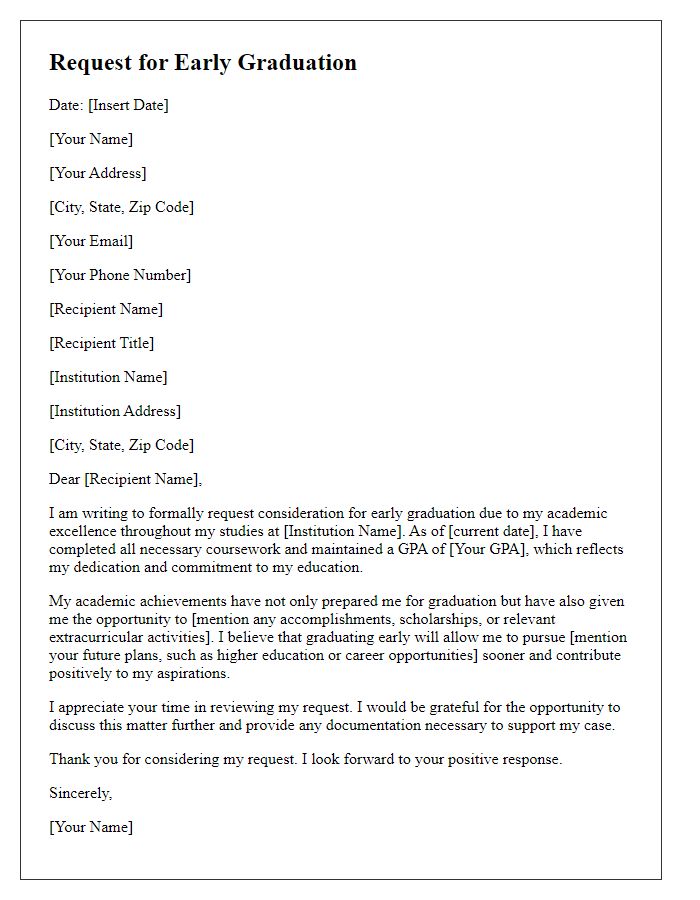
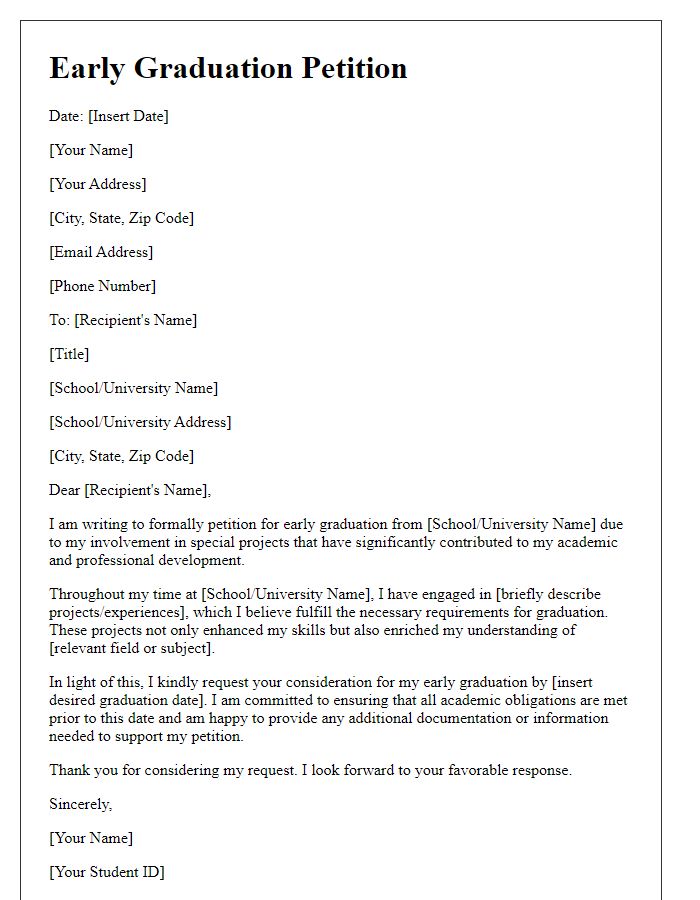
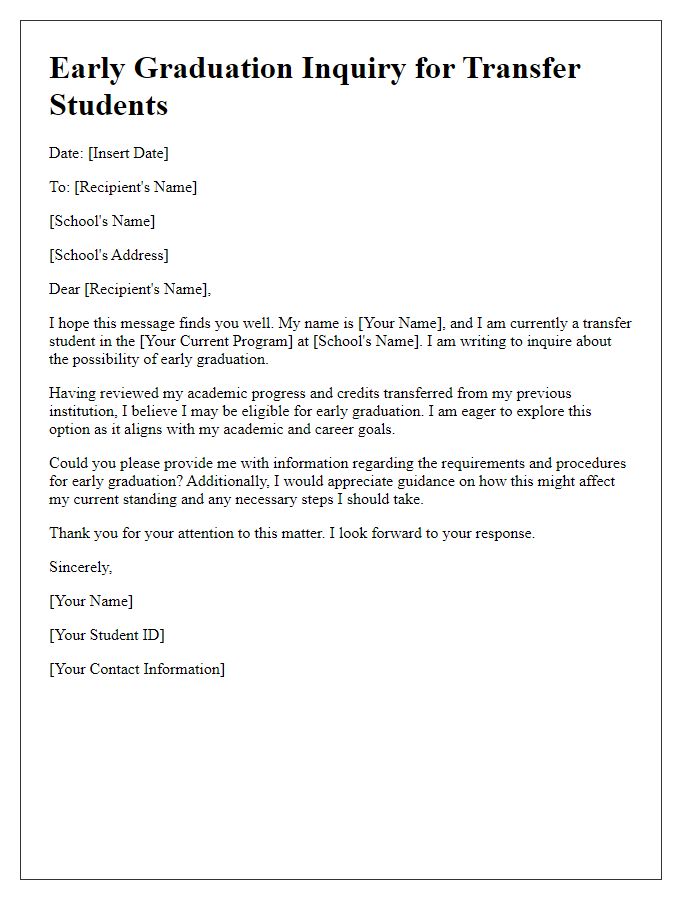
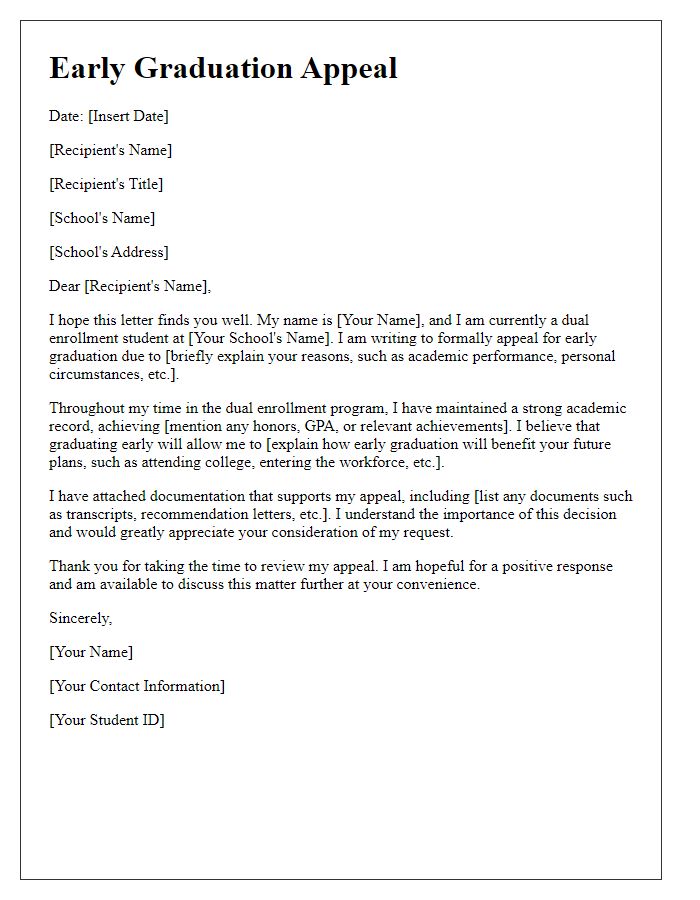
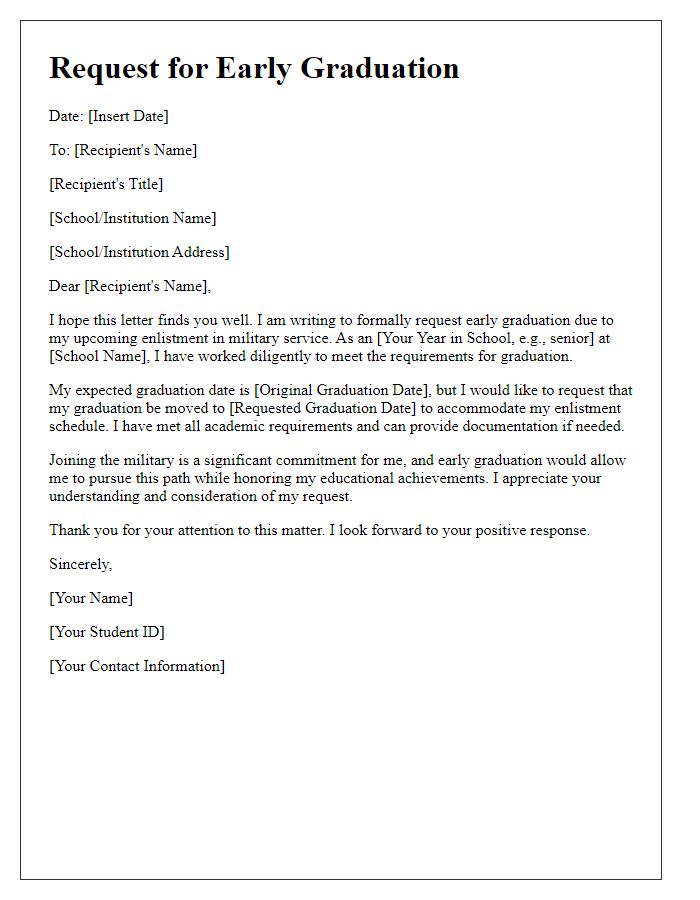
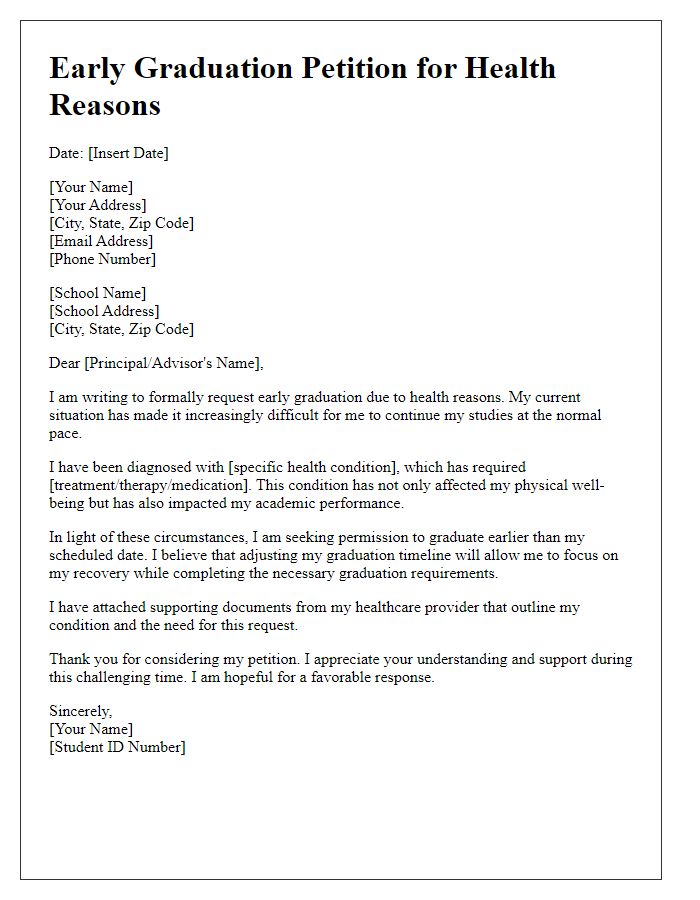
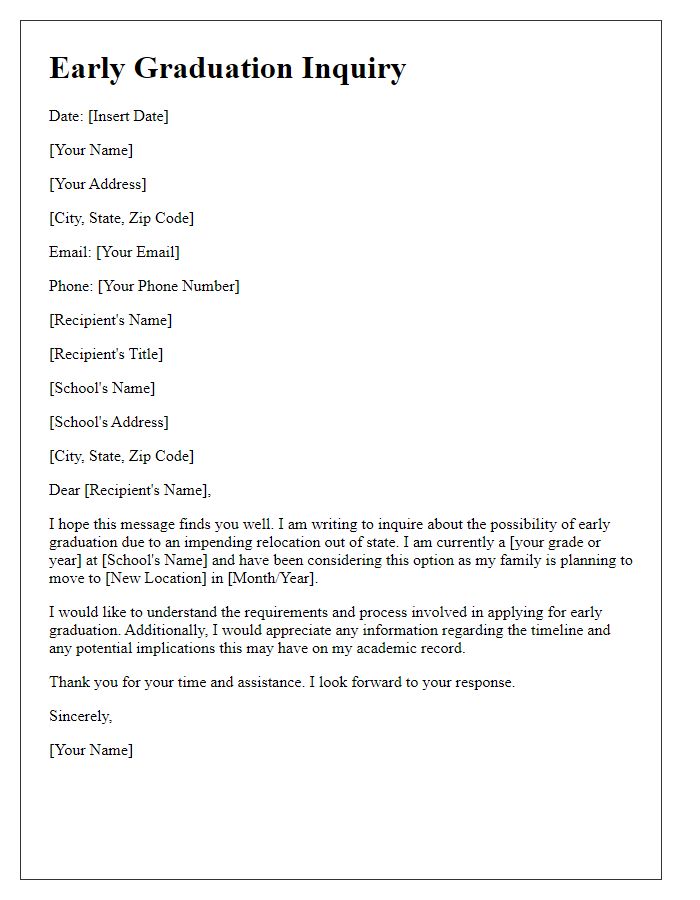
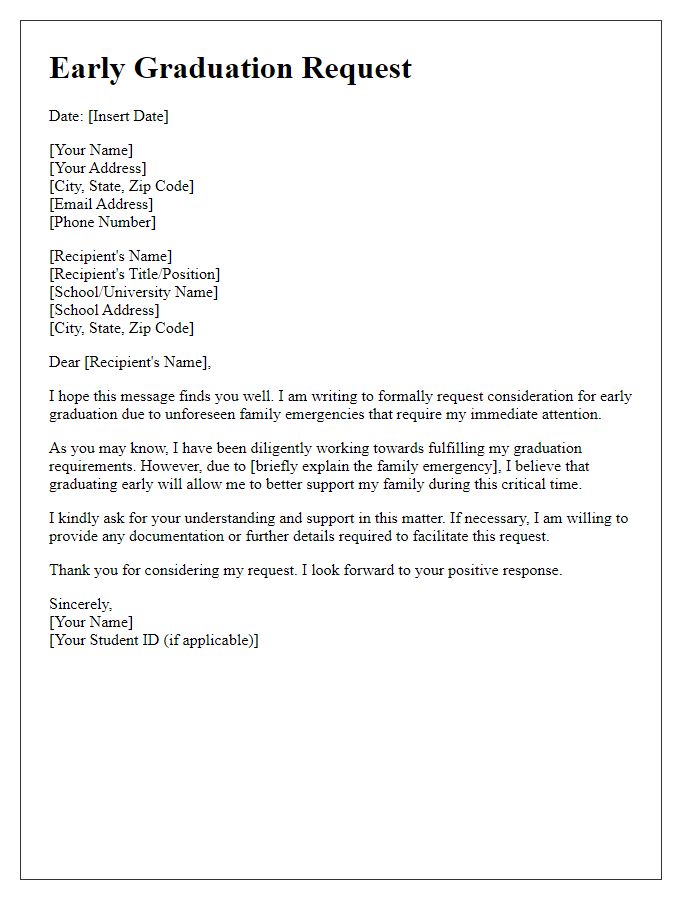

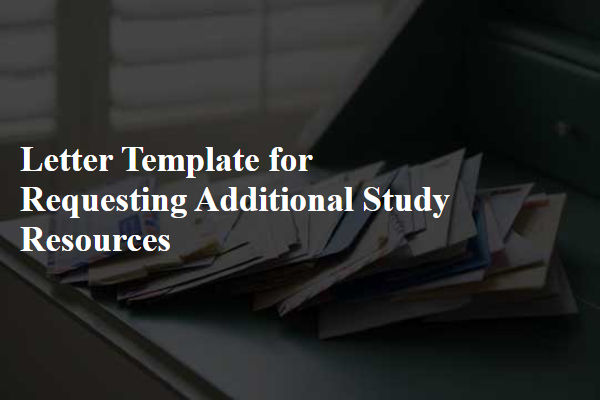
Comments